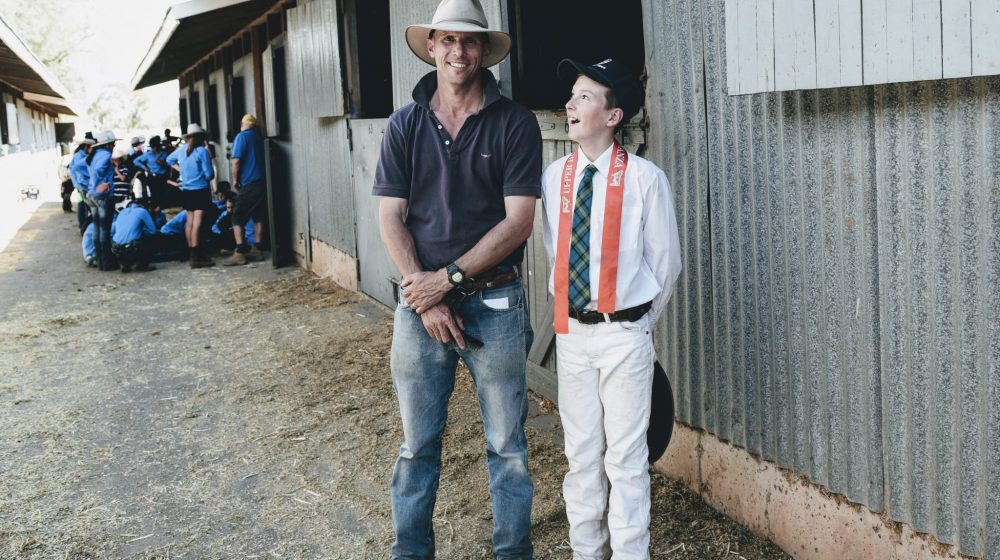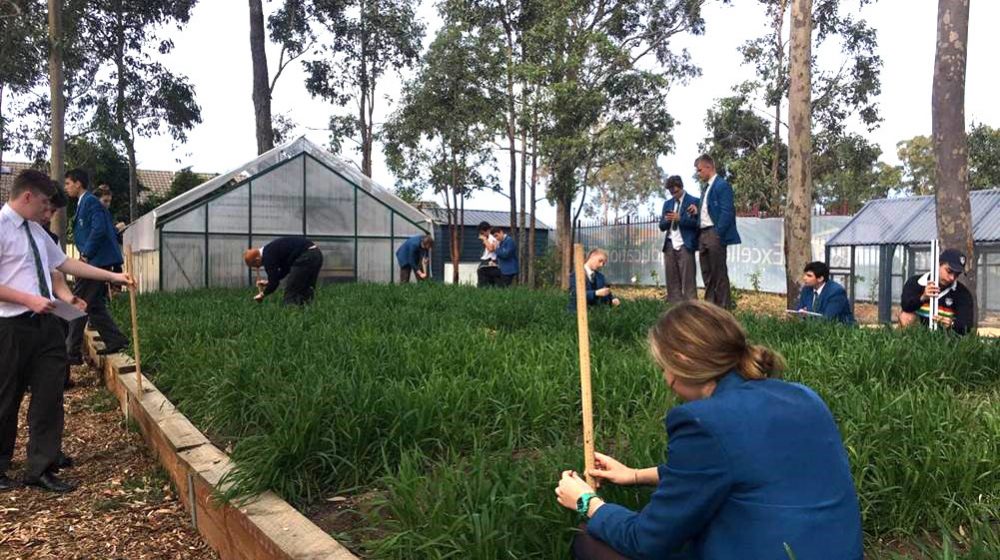Published on November 7, 2018
Preparing students for the work practices and opportunities of the future is an important role of any educational institution. Agriculture is expected to emerge as a booming industry – surpassing the mining sector, so it’s an important inclusion in the HVGS curricular and cocurricular offering.
In a region such as ours, offering a quality agricultural program to senior students is fundamental, especially when statistics suggest that for every Australian agricultural graduate, there are eight jobs available.

In 2018 HVGS launched a new Agriculture program, which is developing in leaps and bounds. Student participation in the program is incredibly varied and hands on.
Over the past six to eight months, the school has created research plots, a commercial glasshouse and a poultry facility behind the Cameron Centre. The recent purchase of the School Farm in South Maitland has taken our program to the next level. The farm is now home to 24 beef show steers, four alpacas and six Dorper sheep.
Studying Agriculture
For the uninitiated, one could be forgiven for thinking that a school Agriculture program consists of tractor driving or gardening, however, the breadth and depth of the course is far-reaching and is closely aligned with other subjects such as Biology, Commerce, Chemistry and even Human Physiology.
Future proofing students for life beyond school is fundamental. With the huge range of diversification opportunities associated with agricultural industries and the transferable skills gained through the study of Agriculture, employment possibilities are endless.
For Year 7 students, Agriculture is taught as a mandatory TAS rotation (over one term). During the course, students grow their choice of horticultural crops while developing new marketing ideas for the herbs that they produce in class.
In Year 9, Agriculture is offered as an elective. Students study various forms of livestock production including sheep, poultry, cattle and even urban farming and aquaculture. In Years 11 and 12, students carry out plant and animal research trials and can specialise in their choice of agricultural technology including droning, ag-economics, agribusiness, robotic dairies and reproductive technologies such as cloning and embryo-transfer.

Cocurricular opportunities
Hunter Valley Grammar School’s commitment to a balanced education involves finding opportunities to holistically nurture individuals in a range of activities that appeal to students’ diverse range of interests and passions. The new Cattle Team provides a unique practical, hands-on opportunity for students in Years 7-12 to prepare, manage, and show our cattle in various rural shows and events such as Wingham Beef Week and Scone Beef Bonanza. The Cattle Team started working with our unbroken steer in early Term 2, and in the space of a week were well on their way in harnessing the patience, respect, trust and teamwork required in handling animals.
All senior students have the potential to work with the school steers and this may just be the opportunity they have been waiting for to show cattle, or it just may be a chance for non-rural students to participate in a new experience. I’d be pleased to chat with students interested in the Cattle Team and Agriculture.
